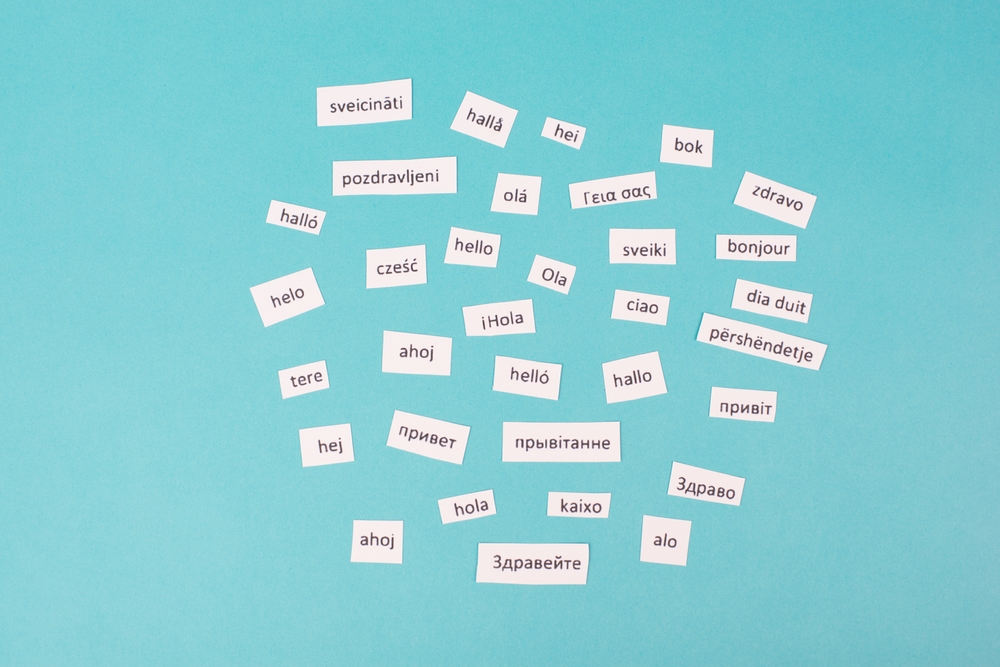The history of our continent has given us a rich cultural heritage that shapes how we perceive and interact with others. When it comes to communication, the European Union recognizes 24 official languages, but it is estimated that more than 200 languages, excluding dialects, are spoken across Europe. This linguistic richness reflects the development of unique languages and dialects within close-knit communities that evolved in relative isolation over centuries. For this reason, since 2001, the European Union has celebrated the European Day of Languages every 26 September to promote, celebrate, and preserve Europe’s linguistic heritage.
A key element in fostering linguistic diversity is language learning. But why is it important to learn languages? What are the most effective methods, and how can we stay motivated to master a language? This article explores and attempts to answer these questions.
Why It Is Important to Learn Languages
There are countless reasons to learn a foreign language—be it for work, a hobby, or out of necessity. Whatever the motivation, language learning offers numerous benefits and often provides a competitive edge.
- Improved Career Prospects: In today’s globalized world, knowing multiple languages is a strategic asset, whether for navigating international markets or aspiring to global roles.
- Enhanced Cognitive Skills: Much like learning to play a musical instrument, learning a language sharpens the mind and boosts memory, concentration, and creativity. It also supports brain plasticity, helping the brain adapt more easily and become more flexible in processing new experiences and knowledge.
- Greater Intercultural Awareness: Learning a language is more than just memorizing vocabulary and grammar. It involves exploring the cultures behind the language, uncovering both cultural differences and commonalities. This fosters empathy, tolerance, and a deeper understanding of others—key goals of the European Day of Languages.

Communicating across cultures can lead to misunderstandings. This infographic explores how cultural norms shape global interactions.
Which Methods Are the Most Effective?
Experts agree that the most effective methodologies for language learning include:
- Language Immersion: This method involves fully immersing yourself in the language by interacting with native speakers and using it in real-life situations.
- Spaced Repetition: A proven technique that involves reviewing words or concepts at specific intervals to improve long-term retention and reduce forgetting.
- Learning in Context: Acquiring vocabulary and grammar in meaningful contexts is far more effective than learning them in isolation. The brain processes and retains information better when it is linked to relevant and practical scenarios.
- Multimodal Learning: Engaging with diverse resources like articles, podcasts, and movies not only exposes learners to the natural use of the language but also makes studying more enjoyable and motivating. This approach activates different areas of the brain simultaneously, enhancing overall learning.
One of the activities organised as part of the European Day of Languages celebration was a survey to discover the best advice for someone starting to learn a language. The most common responses were immerse yourself in the language, interact with native speakers, stay motivated, accept mistakes, understand the cultural context, and use technology.
As we can see, the experiences of language learners align closely with expert recommendations. However, there are as many ways to learn as there are learners. In the 2024 webinar Speexx hosted for the European Day of Languages, we heard from Lisette, a user who achieved a C2 level in German after starting from scratch: “There is no natural gift or anything like that; we all start from one point and work our way up.“
Be Consistent and Set Goals
When it comes to learning a language, what we often find most difficult is to set goals and be consistent in our learning. Having the necessary discipline to dedicate enough time in our daily lives is not a gift we are born with, it requires effort and there are concrete actions to facilitate the task:
- Reflect on what you want to achieve by learning a language. This way you can start setting concrete and realistic goals.
- Break your goals into smaller tasks. Use the SMART method: set goals that are specific, measurable, achievable, realistic and time-bound.
- Track your progress. By setting concrete and measurable goals, you will easily know where you are in your training and what steps you need to take for the future.
- Establish a study schedule. Decide at what time of the day you can dedicate time to learning a language, at least 15 or 30 minutes, and try not to skip sessions. If you organize your time correctly, unforeseen events won’t harm your training.
Reward Your Efforts and Take Your Rest Seriously
Discipline and organization are essential in language learning, but it is equally important to recognize and reward your efforts. When you accomplish a task or reach a goal you’ve set, take the time to celebrate. This helps you feel that your hard work has paid off and motivates you to keep pushing towards new milestones.
It’s also crucial to give your mind the rest it needs to consolidate what you’ve learned and recharge. Take breaks, spend time with friends, or step outside to refresh yourself and maintain your momentum.
Reflections and Conclusions of the European Day of Languages
The European Day of Languages provides an opportunity to celebrate our linguistic identity and traditions, as well as to inspire language learning. There are countless ways to achieve proficiency, from establishing routines and setting goals to using informal resources like podcasts to maintain motivation and a steady rhythm of practice.
Above all, it’s essential to enjoy the learning journey and remember that every moment spent learning a language is an investment in personal growth and development.
